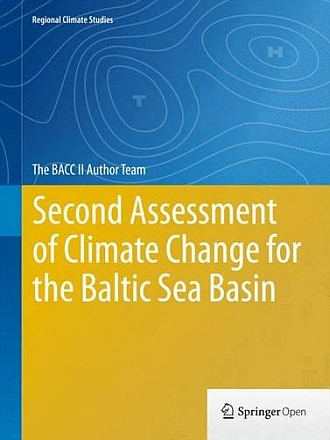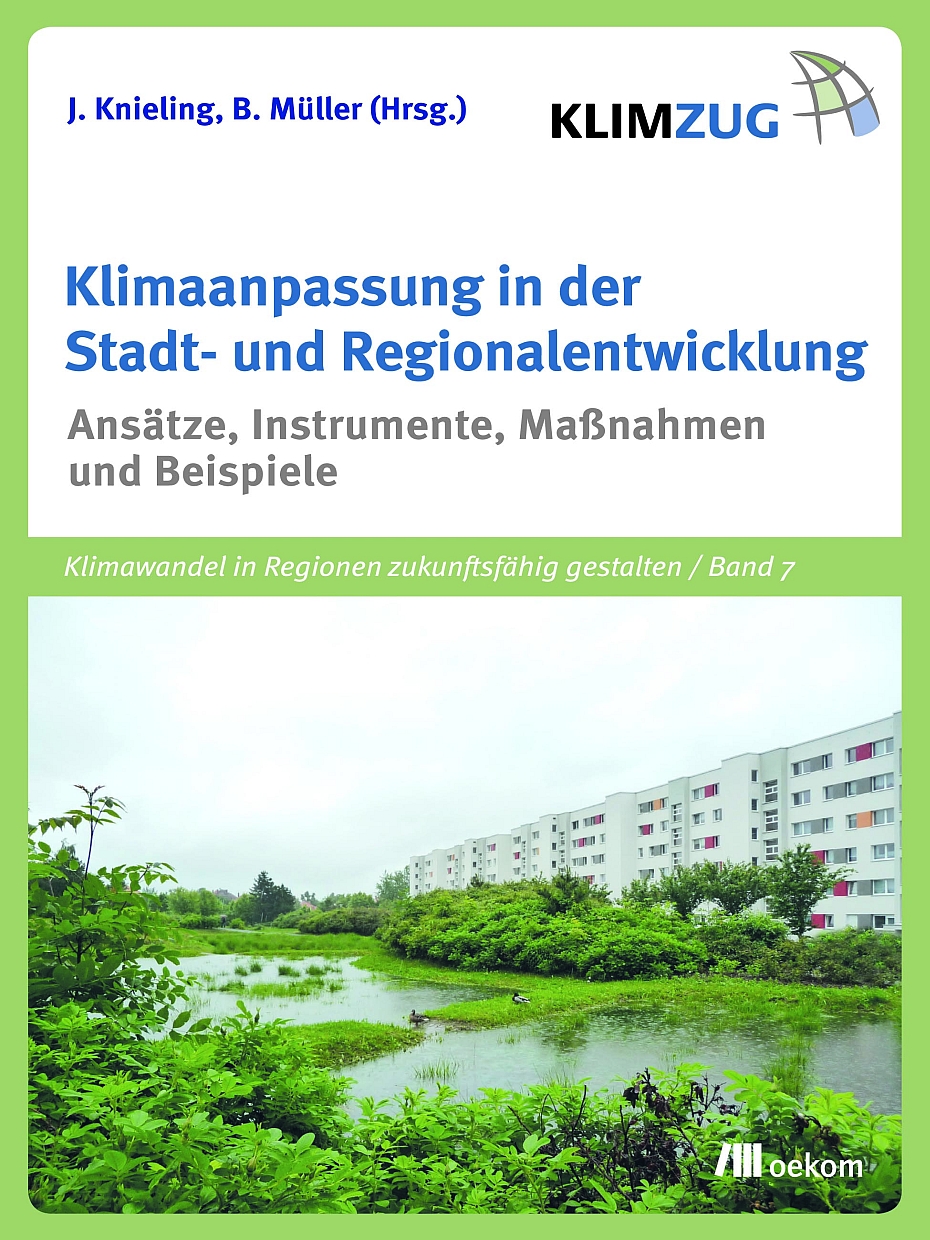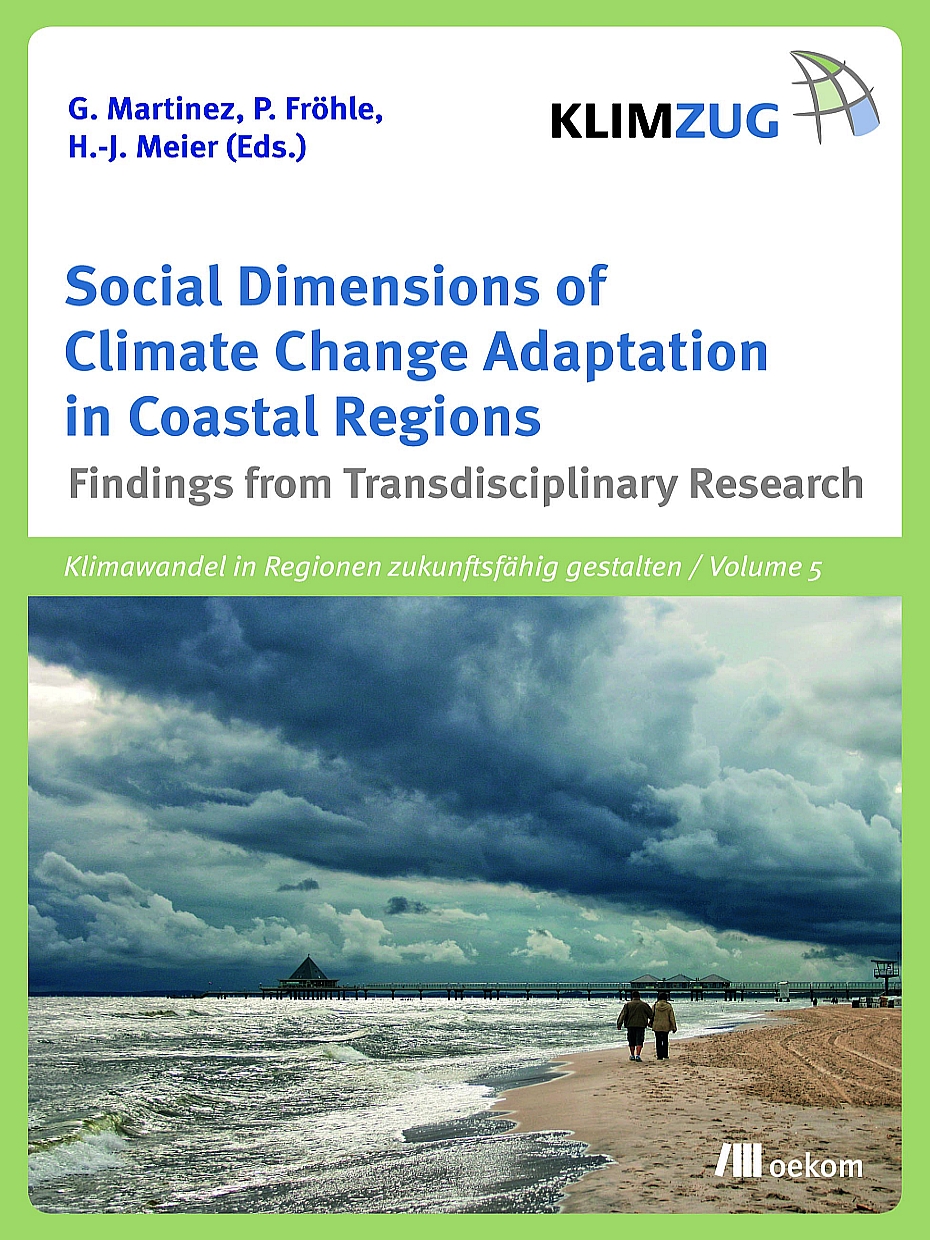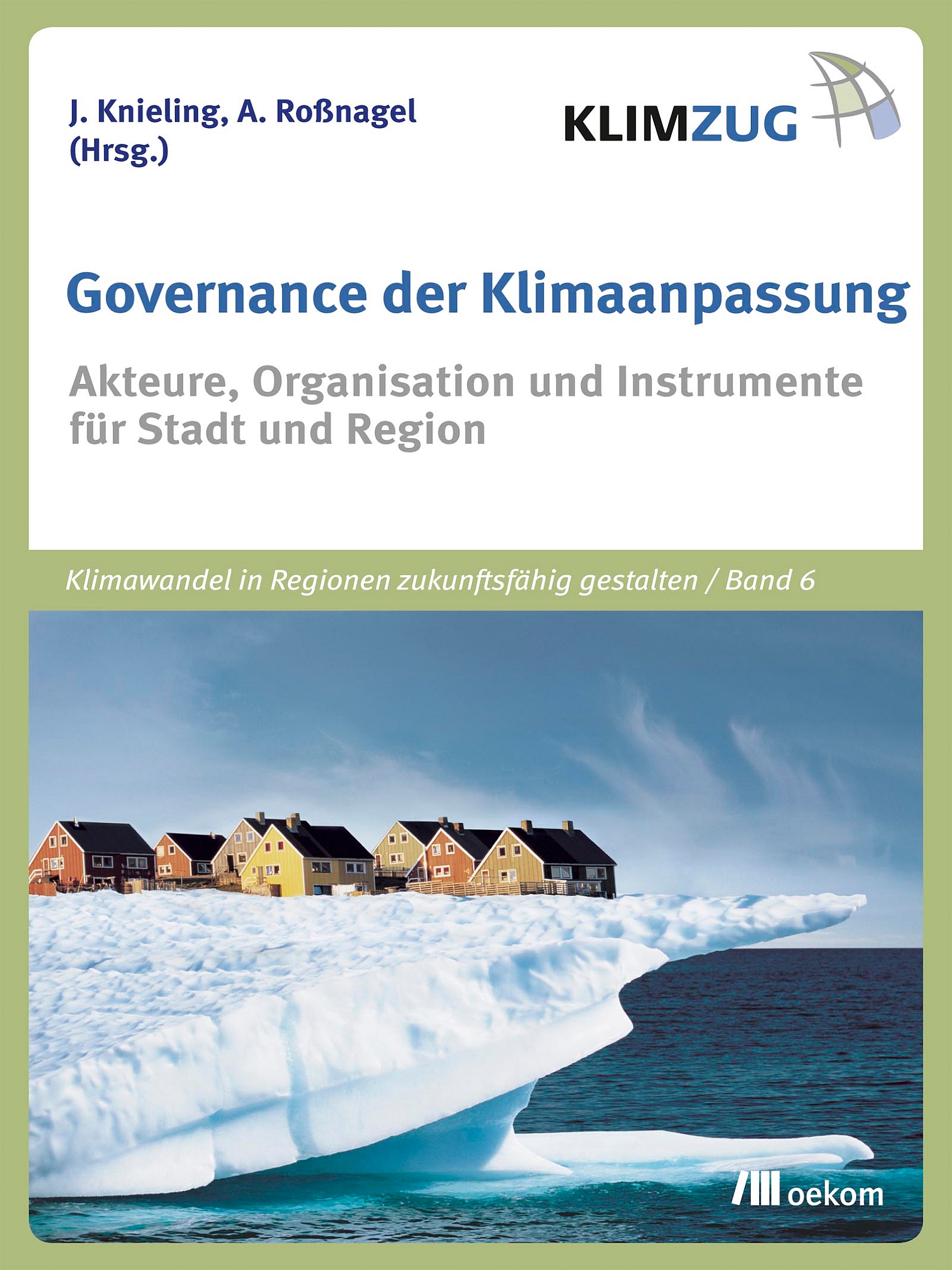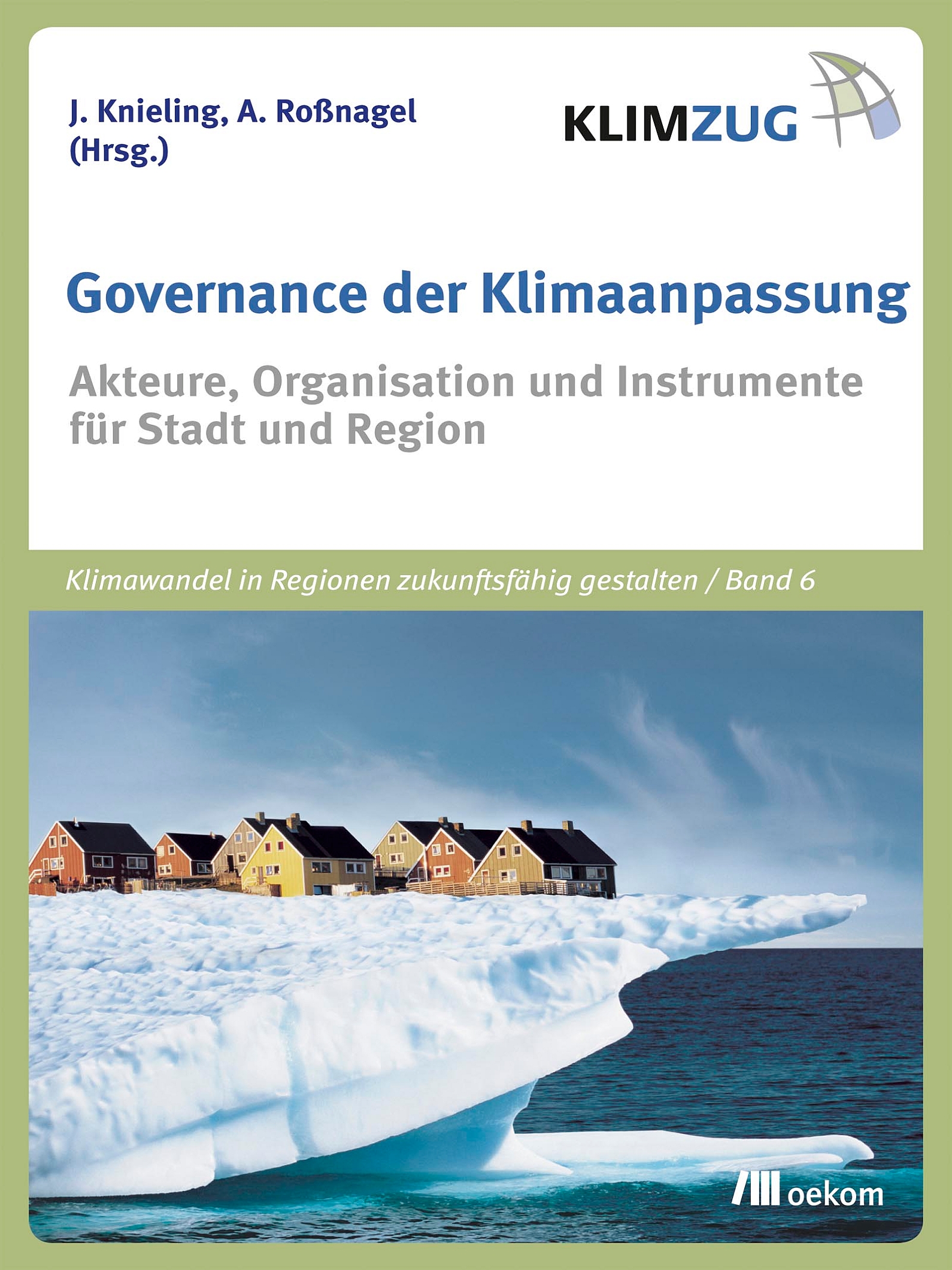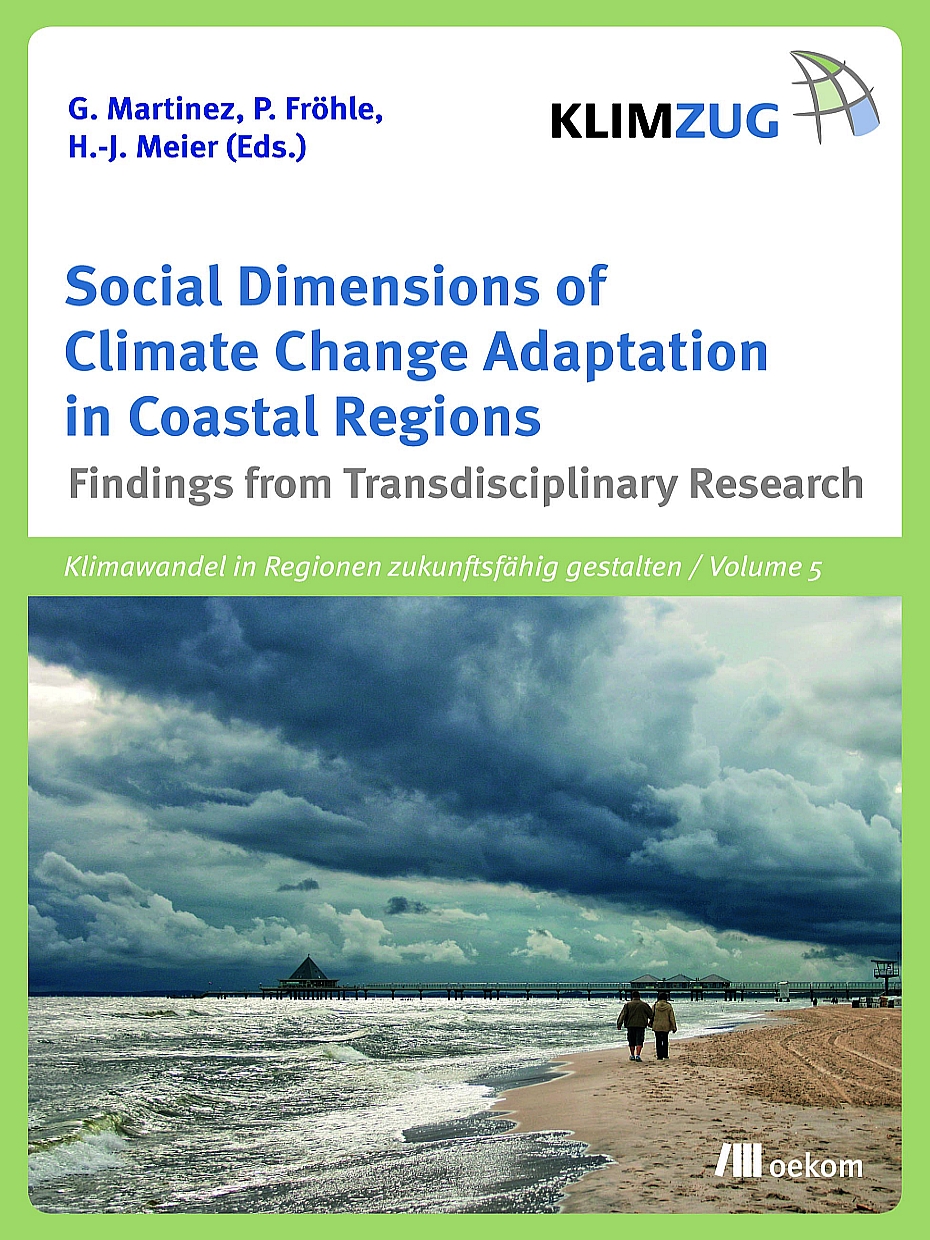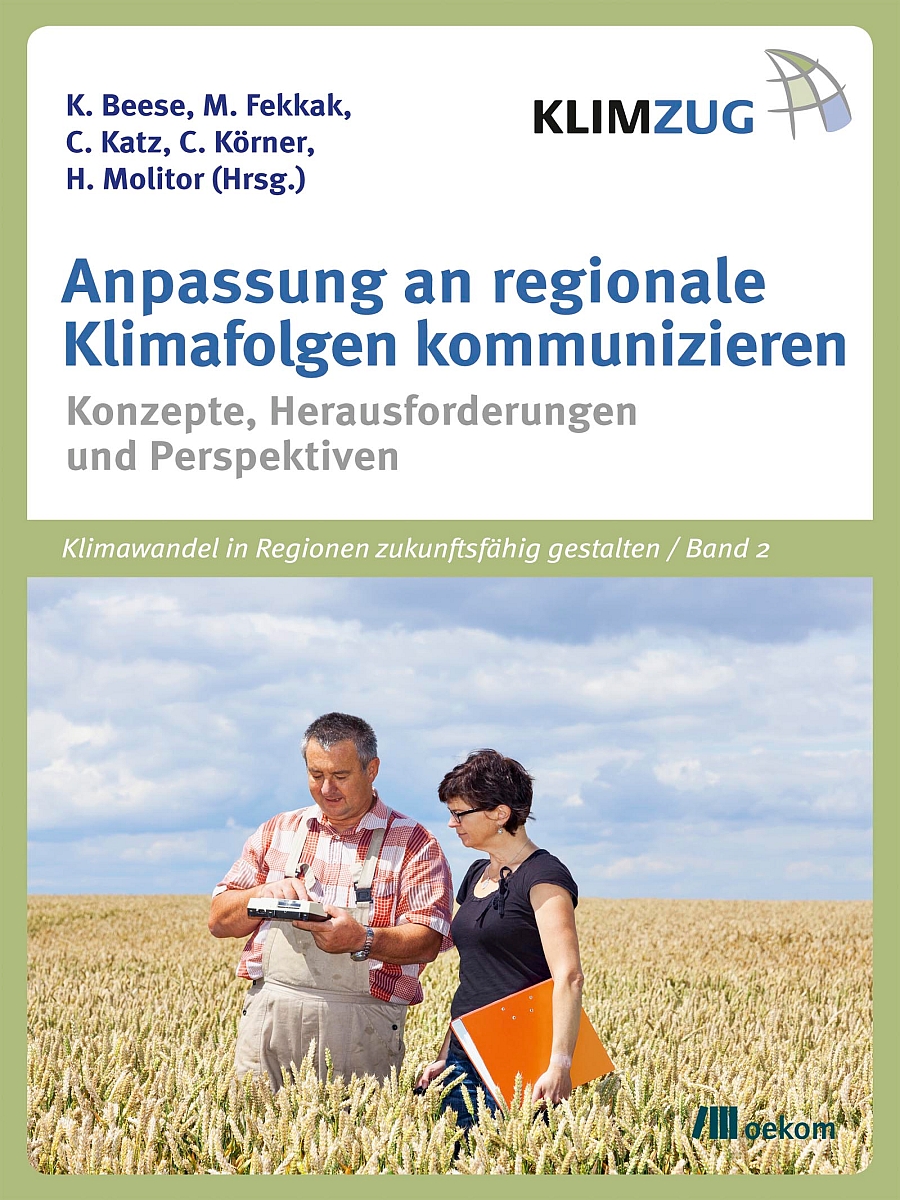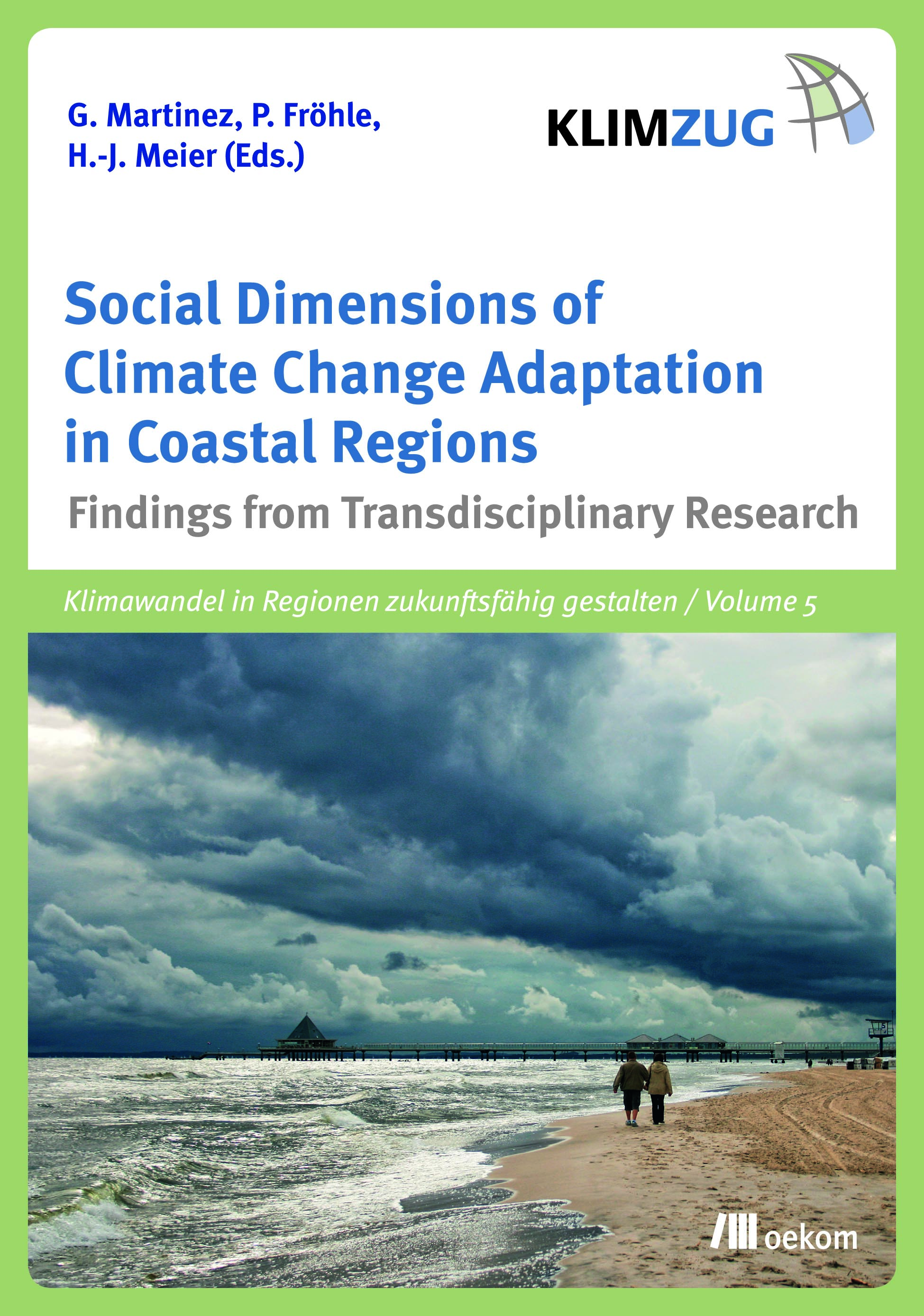
Social Dimensions of Climate Change Adaptation in Coastal Regions
Findings from Transdisciplinary Research
- Publication
- Citation
Martinez, Grit; Peter Fröhle and Hans-Joachim Meier (eds.) 2014: Social Dimension of Climate Change Adaptation in Coastal Regions. Findings from Transdisciplinary Research. [Klimawandel in Regionen zukunftsfähig gestalten 5]. Munich: oekom Verlag.
A changing climate is not only a phenomenon addressing the natural world. Social aspects are also a cause of and are affected by climate change, for which reason social dynamics must be considered in climate change adaptation. Being key factors in creating and solving the challenges of climate change, end users, decision makers and local residents need to be addressed and appreciated by those seeking acceptance for adaptation measures and taking action.
In their book "Social Dimensions of Climate Change Adaptation in Coastal Regions", Grit Martinez (Ecologic Institute), Peter Fröhle and Hans-Joachim Meier address such often overlooked but key societal aspects which influence stakeholders to or not to engage in adapting to a changing climate. Hence the sociocultural and environmental dimensions of adaptation to climate change in coastal regions and beyond take centre stage in this edited volume which authors come from a wide range of disciplines embracing humanities, social and natural sciences, engineering and practitioners working in coastal regions. Bound by the German Ministry of Education and Research (Bundesministerium für Bildung und Forschung (BMBF)) five year initiative KLIMZUG ("Regions adapt to climate change"), the contributions are unanimous that humans in their capacity as end-users, decision makers and local residents are key factors in creating and solving the challenges of climate change and hence are the ones who need to be addressed and appreciated when seeking acceptance and taking action.
The volume is available for 29,95 Euros at oekom.
For a wide range of climate researchers and policymakers, the argument that climate change affects societal behaviour and that societal behaviour mediates adaptation to climate change impacts is widely accepted. Nevertheless, any approach to designing and implementing adaptation measures raises several issues as local stakeholders are embedded in framework programs such as state strategies for coastal defense or flood risks and hence their options for influencing local measures are closely dependent upon questions of process design, power and the role of key personalities. In other words an understanding and acknowledgment of these social dimensions are important if engagements of stakeholders are envisaged.
Natural and social scientists from an interdisciplinary background address questions of how to cope with the challenge of climate change in different contexts. The book highlights aspects of coastal adaptation, response strategies, and factors of success in coastal adaptation at regional and local levels. It starts with an introduction to the knowledge of the state of the art of climate change in the Baltic Sea region. This sets the scene for the following contributions in which authors deal with the diverse regional and local responses to the challenge of climate change in the region. For comparative reasons one contribution also reports from related findings in an international context namely the East Coast of the U.S. A final conclusion contours societal adaptation as a global challenge from an eco-philosophical perspective.
While this volume is meant to capture the outcomes by scientist and practitioners within the initiative of KLIMZUG it aims to spur further support on practical oriented research of interpreting human perceptions and experiences, social engagement, cultural analysis and public debate as wells as further communicating those results to and with policy makers and end-users.






